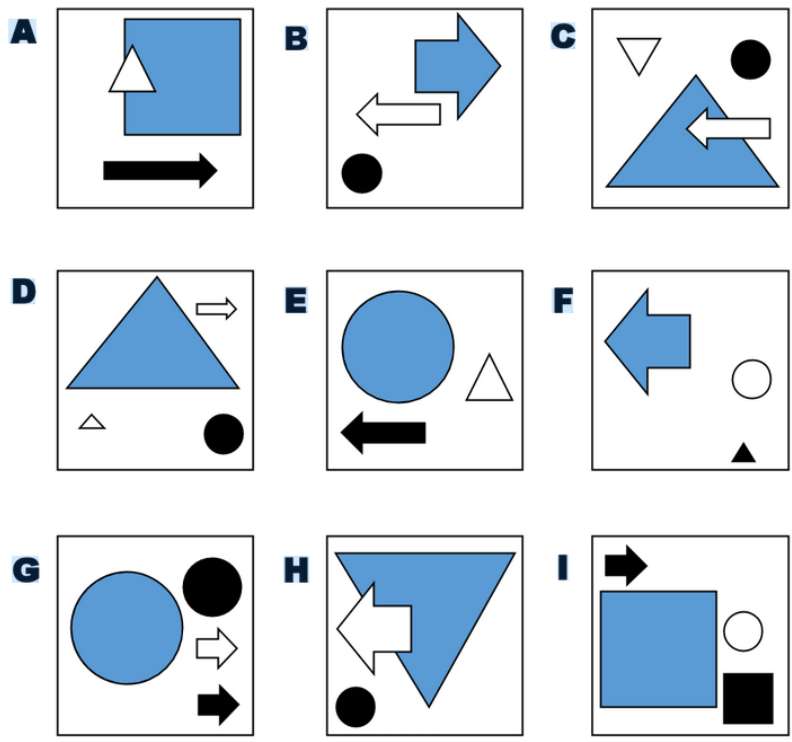Logical reasoning tests are designed to assess a candidate's ability at skills such as how to interpret patterns, number sequences, or the relationships between shapes that mimic different circumstances that could arise on the job. These assessments are also called inductive, abstract, diagrammatic, psychometric, or critical reasoning tests, depending on the provider. While there may be overlap in the styles of questions used, the overall aim is the same for each: to measure a job candidate's logic and problem-solving skills in a variety of ways.
If you have additional assessments that you need to prepare for, we would recommend checking out our guide to passing pre-employment assessments.
When Is A Logical Reasoning Test Used?
You could say that a logical reasoning test is a form of aptitude test. It can be used in the recruitment process for any position at any level but is most commonly applied for roles that have a significant problem-solving component requiring high functioning logic.
That said, it can be used when assessing graduates for entry-level positions but is more frequent in the corporate world. Law firms, accounting firms, investment banks, and consulting firms are a few examples.
Logical reasoning tests most often become a component in the assessment stage of the hiring process, although they sometimes are incorporated at the interview stage. Regardless of the timing, the tests require interpretation and manipulation of statements, numbers, shapes, and patterns, always with the goal of providing insight into a candidate’s mental agility.
You Use Logical Reasoning Every Day
If all this sounds daunting, you can relax. It doesn’t have to be. Logical reasoning tests actually incorporate the same reasoning processes that we utilize every day, just in more overt and abstract ways. The key is to calmly approach each problem. Understanding what your particular test involves and practicing similar questions (i.e. taking practice tests) will help you prepare confidently.
What’s On The Logical Reasoning Assessment
As a test candidate you may be asked to:
- Deduce trends
- Identify patterns
- Analyze arguments
- Draw conclusions
- Interpret relationships
- Identify flaws
Your score in these areas will demonstrate to a prospective employer how quickly you can absorb and process new information, as well as whether you have an aptitude for problem-solving and critical thinking. That’s why a strong score is important. Success in your test shows that you are an adroit candidate.
Most Common Types of Logical Reasoning Tests
Diagrammatic Logical Reasoning
This is, by far, the most widely encountered type of logical reasoning test. It requires you to answer questions based on shapes and patterns; you will read a written question followed by multiple-choice options for your answer. The diagrammatic form commonly tests your abstract or inductive reasoning skills by assessing your ability to identify patterns or trends. To be successful, you must extrapolate or reapply this logic to select the correct diagram to complete a sequence, or to identify the ones that don’t.
Verbal Logical Reasoning
This type of test incorporates a series of paragraphs of text, each followed by its own set of questions for you to work through. The questions typically consist of a list of statements. Your challenge is to decide which statement is the most accurate response.
Some questions may present only one statement and require an answer of Yes, No, or Cannot Say. They require active and attentive reading on your part and are used to check out your deductive reasoning skills by assessing how well you can use the information provided to come to a logical conclusion.
A good tip is to ask yourself questions as you read to make sense of the detail and scope of what’s being covered in the text. This will help improve your judgment on the validity of the statements as you read the subsequent questions.
Test Forms In A Nutshell
Inductive Reasoning
These timed questions require you to recognize patterns from the sequences of images or graphics.
Diagrammatic Reasoning
You will be prompted to look at different patterns or rules and identify something that does not belong.
Deductive Reasoning
Requires you to look at different relationships and their outcomes. A good example of deductive reasoning is the Sudoku puzzle.
How To Prepare For A Logical Reasoning Test
The best way to prepare is to take logical reasoning practice tests. By doing this you will be better equipped to answer questions as they appear, and there will be fewer surprises along the way. It also isn’t a bad idea to find out as much about the test from your prospective employer, like the test provider, for example. If you do this, you could find out how long the test will be, what kinds of questions are likely to appear, and even take practice tests from the same provider, if they offer them.
Here are some great resources for taking practice tests:
Join The Break Community
Steps To Take When Prepping For A Logical Reasoning Test
Here are a few steps to follow to help you best prepare for taking your logical reasoning test.
Confirm What Type Of Logical Reasoning Test You Are Taking
A good first step as you begin to prepare is to confirm the type of test your prospective employer will be using. As you have gathered by now, there are many types of tests so don’t be afraid to ask.
Determine The Question Style
Narrow down the question style if you can. Then practice with questions that are closest to those you will encounter. If you can’t gather information on the test style, go ahead and practice both the diagrammatic and verbal styles of questions.
Take Practice Tests
When taking practice tests, try to deduce the correct answer, rule, or sequence before you look at the answer options. By doing this, you will ensure that your logic isn’t influenced by the possible answers. It will also help you double-check the logic of your answer once you do see the selections.
What if you can’t quite get to the correct answer in your practice sessions? No need to panic. Simply work through the question backward. Look at the correct answer, then figure out what rule, pattern, or evidence led to that answer. It will help you get used to working through the process of logic common in the questions.
Understand Your Time Limits
Sometimes logical reasoning tests have strict time limits, so when practicing the questions, make sure to time yourself. Having a feel for the amount of time available for each question will give you the edge when you’re under pressure on the actual test day.
Stay Calm
Try to stay relaxed during your test so that your brain can focus on solving the problems correctly. You can get to that point - and become faster and more accurate at answering the questions - by becoming familiar with the various tests, their formats, and the logic behind them.
Example
The question is to select the odd one out. From looking at the examples above, we can gather two rules: the largest shape must be blue, and the bottom color must be black. Because of this, we now know that C doesn't fit because the bottom color isn’t black.

How To Pass A Logical Reasoning Test
Passing the logical reasoning test means being an active reader and being able to analyze every last detail that is provided in the questions. Here are four tips that you can use to ensure a successful score on your logical reasoning test:
- Develop a mental checklist to go through prior to answering each question, like writing down the rules that you can discern from each question.
- Focus on one rule at a time. This may not only help you determine what is important in a question but also what isn’t.
- Use your time efficiently. If you get stuck on a question, it is ok to move on to the next question and save the ones you don’t get until the end.
- Find answers within answers. If you can find a pattern within all the possible answers of a question it may help you find the right answer itself.
Bottom Line
Just about every job requires some degree of logical reasoning, some at a higher level than others. To that end, success in many jobs relies heavily on an employee’s ability to reason and problem solve. Managers will tell you that the capability to work through problems by applying sound reasoning and critical thinking is important to their business. Profoundly important. Employers know that people who are skilled in logical reasoning are better able to assess risks, develop strategies, and execute their job duties and other complex tasks with minimal supervision. These are the employees who are considered to be valuable assets because they can look ahead, forecast, and solve future business problems.
Logical reasoning tests also save time for employers by helping them gauge applicants’ abilities and problem-solving skills before reaching the interview stage of the hiring process. Ultimately, the tests help ensure that every person employers bring into a company has the cognitive abilities to contribute to its success. Just as important, when employees land a job that’s a perfect fit and innately possess the talents to do well in that job, they are more productive, happier, and likely to stay with their company longer.
If you want to take practice tests to prepare for an upcoming Logical Reasoning Test, we would recommend checking out JobTestPrep’s practice tests.














